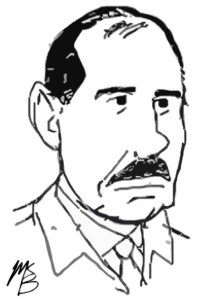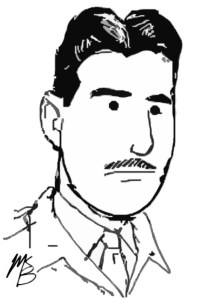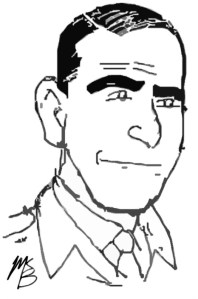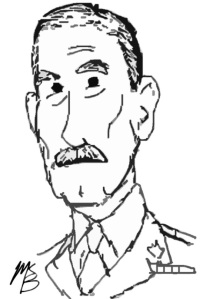Lieutenant-Colonel Doug Howat
Regina Rifle Regiment

I could not determine exactly where our two forward platoons had gone. There was a lot of noise up on the ridge so my runner and I, along with Captain Howat of “B” Company, tried to go forward. We were met by grenades and bullets, escaping death only by crawling on our stomachs. It was pointless.
(Brown, “Battle of Moyland Wood,” 106)
Born on 7 February 1912 in Norwood Grove, Manitoba, Douglas Carrick Howat was commissioned with the 2nd Armoured Car Battalion in February 1941 and promoted to captain the next year. He joined the Regina Rifle Regiment overseas before being assigned officer commanding an army camp in Surrey. He rejoined the Rifles in Normandy in July 1944 and would take command of the battalion a year later until demobilization.





